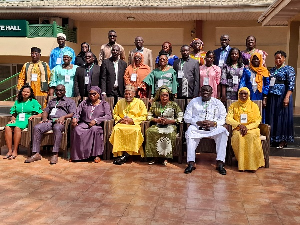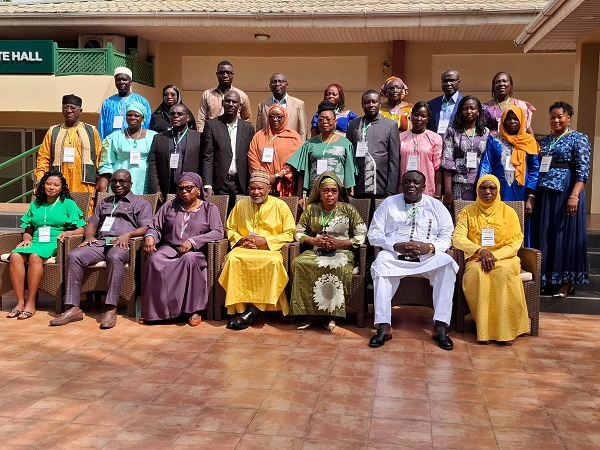 The focus is on integrating gender and social inclusion considerations into agricultural research
The focus is on integrating gender and social inclusion considerations into agricultural research
The West and Central African Council for Agricultural Research and Development (CORAF) and the Food and Agriculture Organization (FAO) have jointly called for the implementation of targeted programmes and inclusive policies to enhance the participation of women in agricultural advisory services across Africa.
The two institutions raised concerns over the persistent marginalisation of women in accessing essential agricultural services, despite women constituting a significant portion of the workforce in the agricultural value chain. They warned that the exclusion of women from advisory and support systems posed a threat to food productivity and security on the continent.
These concerns were voiced at the opening of a three-day regional training workshop on gender and rural advisory services in Accra. The programme, organised by CORAF in partnership with the FAO under the Food System Resilience Programme (FSRP), aims to build the capacity of researchers in National Centres of Specialization and Regional Centres of Excellence.
The focus is on integrating gender and social inclusion considerations into agricultural research and innovation activities.
Participants at the workshop were equipped with practical tools, methodologies, and approaches to ensure the systematic inclusion of gender dimensions in the generation, selection, dissemination, access, and adoption of technologies in agro-sylvo-pastoral and fisheries value chains.
Dr. Mariame Maiga, Regional Gender Advisor for CORAF, expressed concern over growing gender inequalities along the agricultural value chain, particularly in relation to access to inputs, advisory services, and technology.
She attributed the limited representation of women as agricultural extension officers to deep-seated cultural stereotypes that hinder women’s effective participation in traditionally male-dominated roles.
“We must provide incentives and training to empower women at every level of the agriculture value chain,” Dr. Maiga said.
“This includes adopting gender-responsive communication tools to support advocacy and ensuring underprivileged women and youth have access to technology to increase food productivity and meet growing demand.”
Echoing similar sentiments, Madam Terefe Bethel, Senior Gender Expert at FAO, noted that although women contribute significantly to both farming and post-harvest activities, they remain disproportionately disadvantaged in accessing agricultural services compared to their male counterparts.
“The participation of women is critical not only for building sustainable food systems but also for reducing poverty at the household level,” Madam Bethel said. “It is imperative that gender dimensions are mainstreamed into programmes, policies, and service delivery.”
Dr. Kyky Ganyo, Assistant to the Coordinator for the FSRP-CORAF, described the low number of female extension officers across the continent as troubling, stressing the need for continuous training and support to change the status quo and boost agricultural productivity through inclusive technology deployment.
The workshop marked a significant step toward promoting gender equity in the agriculture sector and fostering resilience through inclusive development approaches.
